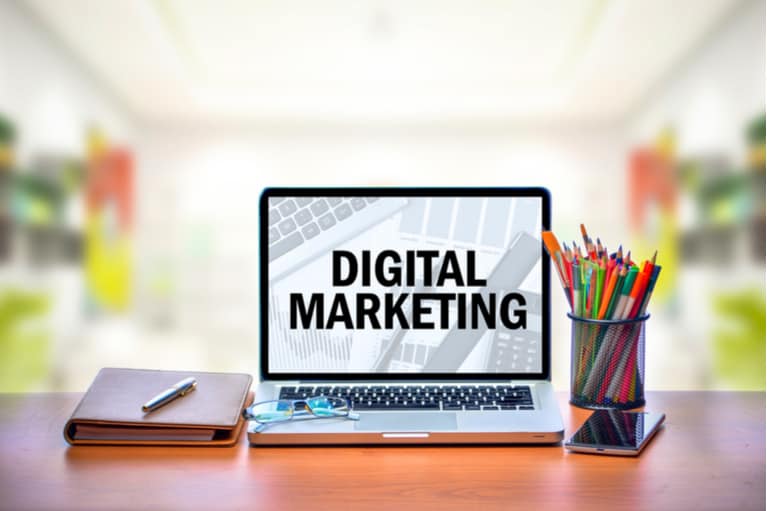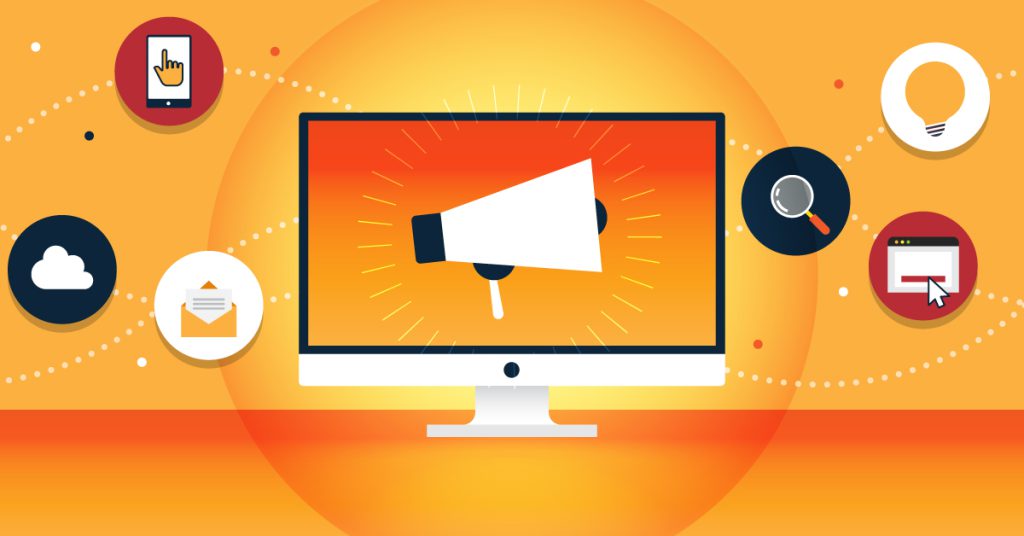The term digital marketing refers to the use of digital channels to market products and services in order to reach consumers. This type of marketing involves the use of websites Mobile devices, social media, search engines, and other similar channels. Digital marketing became popular with the advent Of the internet in the 1990s. It involves some of the same principles as traditional marketing and is often considered a new way for companies to approach consumers and understand the. Companies often combine traditional and digital marketing techniques in their strategies. Digital marketing, also called online marketing, refers to all marketing efforts that occur on the internet. Businesses leverage digital channels such as search engines, social media, email, and other websites to connect with current and prospective customers. This also includes communication through text or multimedia messages. Digital marketing helps you reach a larger audience than you could through traditional methods, and target the

prospects who are most likely to buy your product or service. Additionally, it’s often more cost-effective than traditional advertising and enables you to measure success on a daily basis and pivot as you see
If you place an advertisement on TV, in a magazine, or on a billboard, you have limited control over who sees the ad. Of course, you can measure certain demographics including the magazine’s typical readership, or the demographic of a certain but it’s still largely a shot in the dark. Digital marketing, on the other hand, allows you to identify and target a highly-specific audience, and send that audience personalized, high-converting marketing messages. For instance, you might take advantage of social media’s targeting features to show social media ads to a certain audience based on variables such as age, gender, location, interests, networks, or Alternatively, you might use PPC or SEO strategies to serve ads to users who’ve shown interest in your product or service, or who’ve searched for specific keywords that relate to your industry.

Ultimately, digital marketing enables you to conduct the research necessary to identify your buyer persona, and lets you refine your marketing strategy over time to ensure you’re reaching prospects most likely to buy.
1) It’s more cost-effective than outbound marketing methods.
Digital marketing enables you to track campaigns on a daily basis and decrease the amount of money you’re spending on a certain channel if it isn’t demonstrating high ROI. The same can’t be said for traditional forms of advertising. It doesn’t matter how your billboard performs — it still costs the same, whether or not it converts for you. Plus, with digital marketing, you have complete control over where you choose to spend your money. Perhaps rather than paying for PPC campaigns, you choose to spend money on design software to create high-converting Instagram content. A digital marketing strategy allows you to continuously pivot, ensuring you’re never wasting money on channels that don’t perform well.
2) Digital marketing evens the playing field within your industry and allows you to compete with bigger brands.

If you work for a small business, it’s likely difficult for you to compete with the major brands in your industry, many of which have millions of dollars to invest in television commercials or nationwide campaigns. Fortunately, there are plenty of opportunities to outrank the big players through strategic digital marketing initiatives. For instance, you might identify certain long-tail keywords that relate to your product or service, and create high-quality content to help you rank on search engines for those keywords. Search engines don’t care which brand is the biggest instead, search engines will prioritize content that resonates best with the target audience.
3) Digital marketing is measurable.
Digital marketing can give you a comprehensive, start-to-finish view of allthe metrics that might matter to your company — including impressions, shares, views, clicks, and time on page. This is one of the biggest benefits of digital marketing. While traditional advertising can be useful for certain goals, its biggest limitation is measurability. Unlike most offline marketing efforts, digital marketing allows marketers to see accurate results in real-time. If you’ve ever put an advertisement in a newspaper, you’ll know how difficult it is to estimate how many people actually flipped to that page and paid attention to your ad. There’s no surefire way to know if that ad was responsible for any sales at all. On the other hand, with digital marketing, you can measure the ROI of pretty much any aspect of your marketing efforts.

4) It’s easier to adapt and change a digital marketing strategy.
A lot of work goes into developing a marketing strategy. Generally, you will follow through with that strategy until completion, allow it to take effect, and then judge its results. However, things do not always go according to plan. You may realize halfway through that a calculation was off, an assumption was incorrect, or an audience did not react how they were expected to. Being able to pivot or adjust the strategy along the way is highly beneficial because it prevents you from having to start over completely. Being able to change your strategy easily is a great benefit of digital marketing. Adapting a digital marketing strategy is a lot easier than other more traditional forms of marketing, like mailers or billboard advertising. For instance, if an online ad isn’t delivering as expected, you can quickly adjust it or pause it to yield better results.
Key points
- Digital marketing provides businesses with incredibly flexible opportunities for continuous growth but it’s up to you to take advantage of them.
- Digital marketing was popularized in the early 2000s, but digital marketing has been around much longer.
- Digital marketing is a broad field, including attracting customers via email, content marketing, search platforms, social media, and more.
- This form of marketing is different from internet marketing, which is exclusively done on websites.

